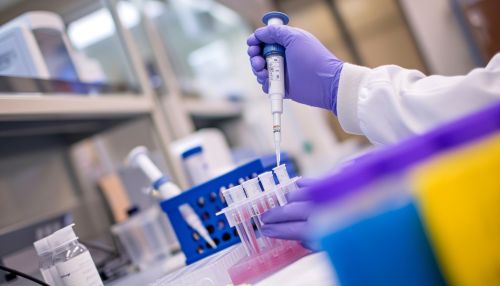Genetics and Autoimmune Diseases
Introduction
Genetics is the study of genes, genetic variation, and heredity in organisms. It is generally considered a field of biology, but intersects frequently with many other life sciences and is strongly linked with the study of information systems. Autoimmune diseases, on the other hand, are conditions arising from abnormal immune responses to normal body parts. There are at least 80 types of autoimmune diseases. Nearly any body part can be involved. Common symptoms include low grade fever and feeling tired. Often symptoms come and go.


Genetic Factors in Autoimmune Diseases
The genetic factors in autoimmune diseases are complex and multifaceted. While it is clear that genetics play a significant role in the development of these conditions, the exact mechanisms are not fully understood. It is believed that a combination of genetic susceptibility and environmental triggers lead to the onset of autoimmune diseases.
Several genes have been identified that are associated with an increased risk of developing specific autoimmune diseases. For example, the HLA (Human Leukocyte Antigen) gene complex has been linked to conditions such as rheumatoid arthritis, type 1 diabetes, and multiple sclerosis. These genes are involved in the immune response, and variations in these genes can lead to an abnormal immune response.
Environmental Triggers
In addition to genetic factors, environmental triggers are believed to play a significant role in the onset of autoimmune diseases. These triggers can include infections, exposure to certain chemicals or toxins, and even certain dietary factors. These triggers can cause changes in the immune system that lead to the development of autoimmune diseases.
Genetic Testing and Autoimmune Diseases
Genetic testing can be used to identify individuals who are at a higher risk of developing autoimmune diseases. This can be particularly useful in families with a history of these conditions. However, it is important to note that having a genetic predisposition does not guarantee that an individual will develop an autoimmune disease. Environmental factors and lifestyle choices also play a significant role.


Treatment and Management of Autoimmune Diseases
The treatment and management of autoimmune diseases can be challenging, as these conditions often involve multiple organ systems and can have a wide range of symptoms. Treatment typically involves managing symptoms and preventing complications. This can include medication to reduce inflammation and suppress the immune system, physical therapy to manage pain and improve mobility, and lifestyle modifications such as diet and exercise.
Future Research Directions
Future research in the field of genetics and autoimmune diseases is likely to focus on better understanding the genetic factors that contribute to these conditions. This could potentially lead to the development of new treatments and prevention strategies. Additionally, research is also likely to focus on identifying environmental triggers and how these can be avoided or mitigated.
